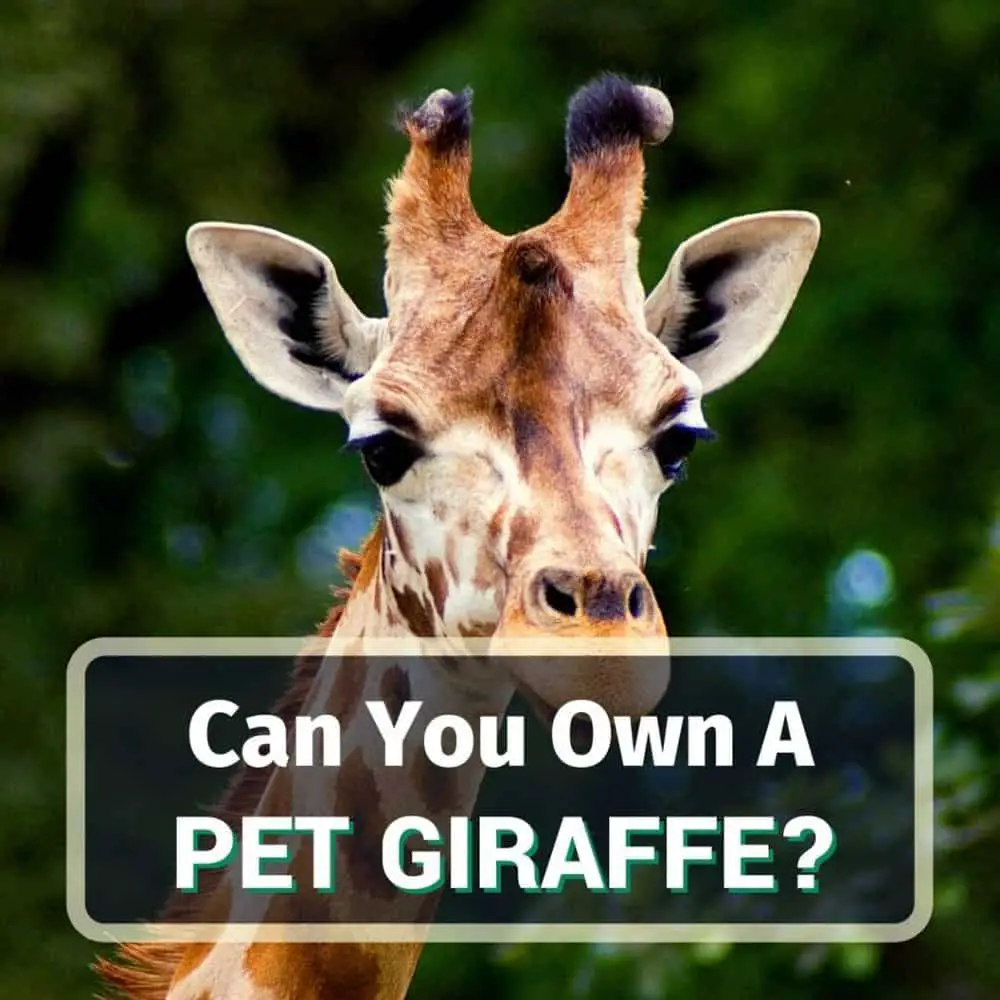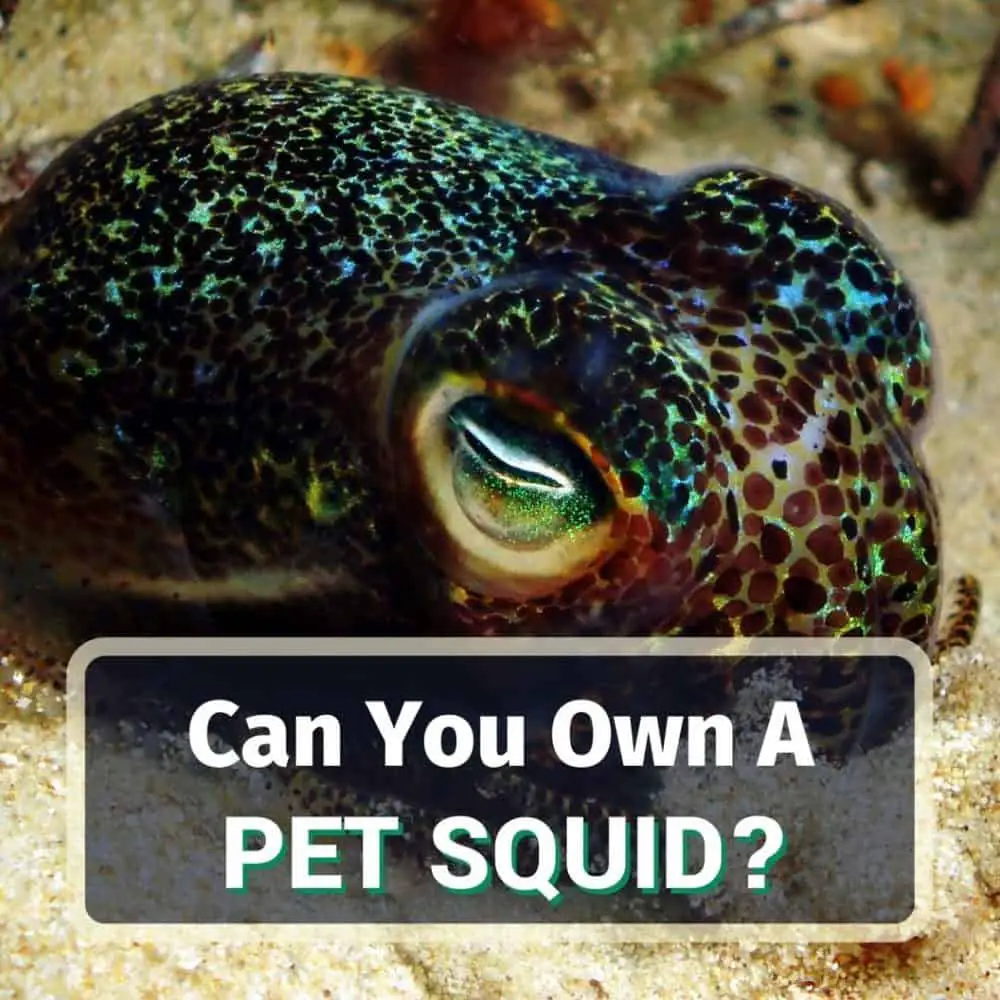Can you own a pet hyena? Most likely owning a hyena as a pet isn’t a good idea. Even if it’s legal in some states, chances are high that you can’t take proper care of these wild animals. In this article, you will get an impression of what it looks like to have a pet hyena.
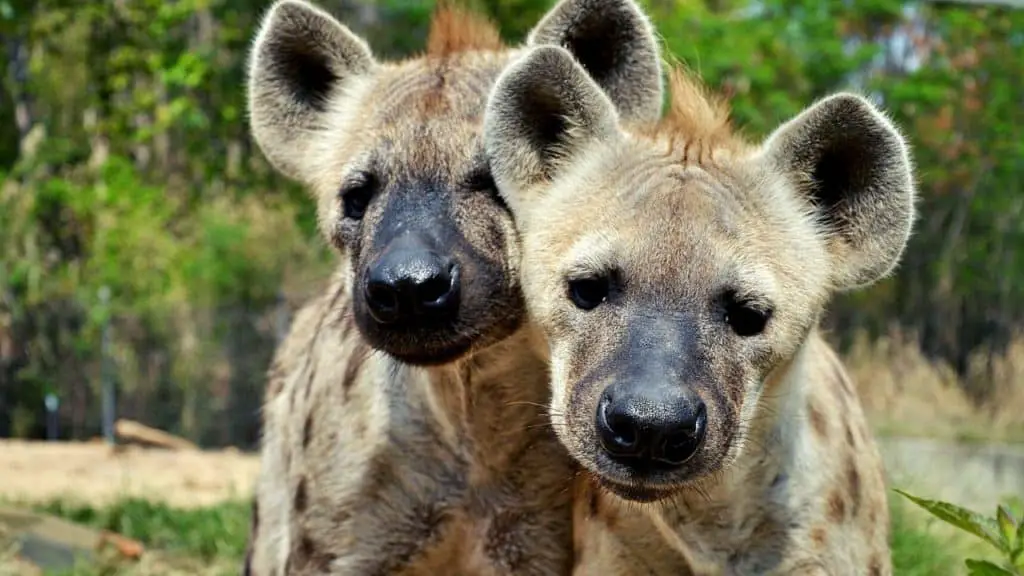
For many people the idea of owning an animal of prey is fascinating. However, you should think twice. What starts as a cool thought might be impossible or can turn into a nightmare quickly.
Can You Keep a Hyena as a Pet?
Hyenas resemble a cross between a cat and a dog and are their own unique species like fossas. They are known for their menacing laugh and hunting skills. You can find four types of hyenas:
- Striped: the smallest type with striped coats; known for stealing and hunting large prey.
- Aardwolf: small fox-like hyenas with long necks, ears, and legs but no claws. They use their tongues to eat termites.
- Brown: relatively large with dark fur, pointed ears, and short muzzles; they are opportunistic omnivores.
- Spotted: the largest type with spotted coats; the females dominate the males.
They are carnivorous mammals that use their teeth to catch prey. They eat and run quickly, but their mating, grooming, parental, and scent marking behaviors resemble cats.
For safety reasons, hyenas are considered exotic animals. In most states, you cannot keep a hyena as a pet. Even in the places that you can, you probably shouldn’t.
Is It Legal to Own a Hyena?
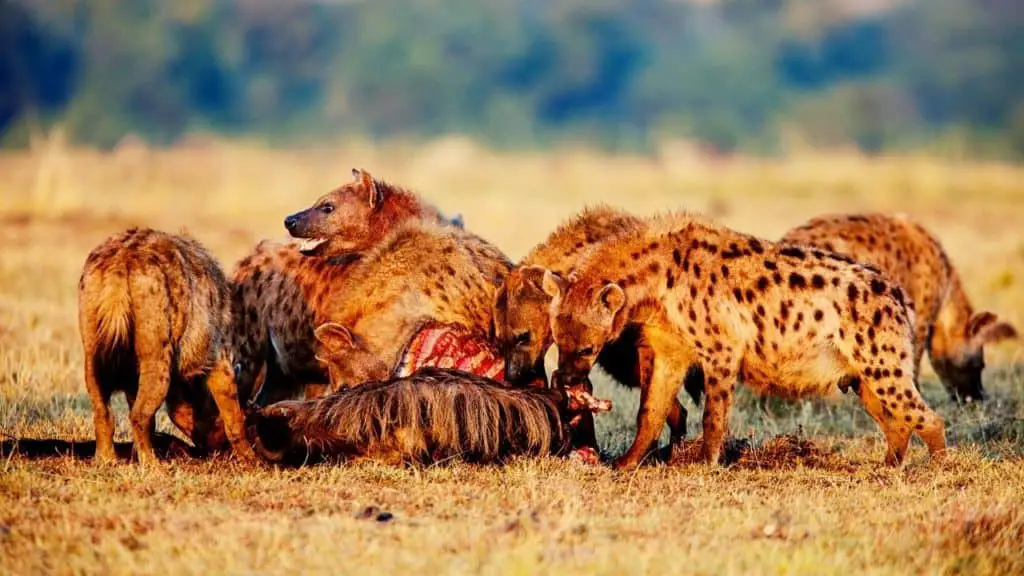
Hyenas are considered exotic animals. You can potentially own a hyena in these states:
- Alabama
- Arkansas
- Nevada
- North Carolina
- Oklahoma
- South Carolina
- Wisconsin
Some other states will let you own a hyena if grandfathered in. You will need to contact your city and state government to see if you can legally own one in your region.
Most places that will let you keep a hyena require you to acquire permits, insurance, and licenses. They may forbid you from purchasing one if you do not have sufficient space to care for it.
Many states expressly forbid them, but you may have leeway in other states that classify hyenas under a specific group.
Why Hyenas Don’t Make Good Pets
You should not keep a hyena as a pet for multiple reasons.
1. Hyenas Are Predators
Hyenas are dangerous predators. Despite their somewhat charming appearance, they eat antelopes and zebras regularly. A hyena can even take down a young lion.
By keeping a hyena on your property, you are putting yourself, your family, your neighbors, and any surrounding animals at risk.
2. Difficult to Domesticate
If you were to keep a hyena as a pet, you would need to give it tons of care and attention to domesticate it safely.
You will need to tame a hyena if you want to keep it as a pet. The striped hyena is the easiest to tame due to its small size, but others are also trainable. However, you need to start domesticating them as babies before it becomes too difficult.
Keep in mind that you will need to meet your hyena’s predatory, social, and space requirements.
3. Social Creatures
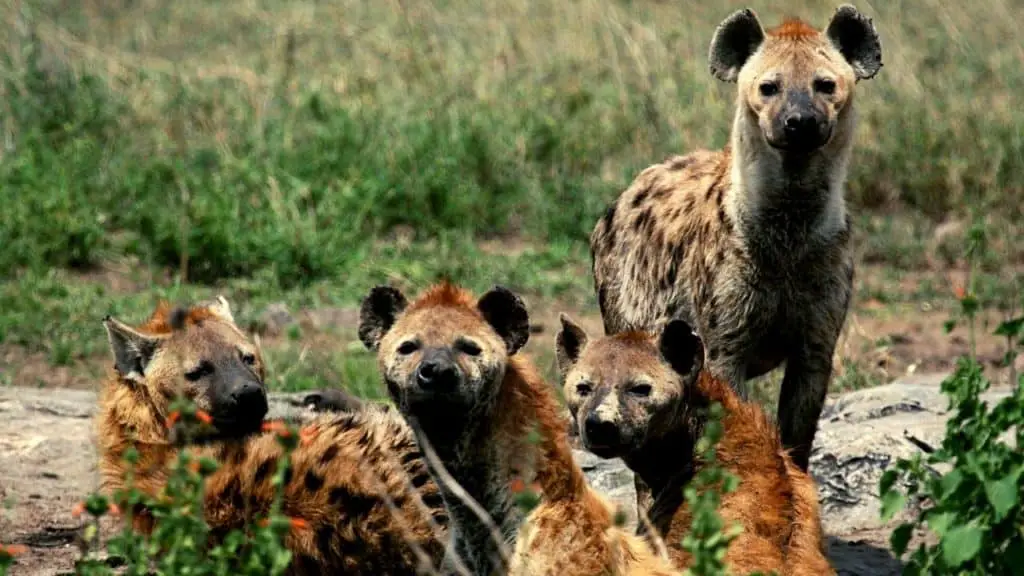
Hyenas are social creatures. Spotted hyenas live in clans that defend territories, and they have a hierarchy. Taking them out of this environment goes against their natural inclinations.
Humans can form bonds with hyenas, as seen by the Hyena Man. If you raise a striped hyena with a dog from infancy, they can grow a bond with one another and fulfill their social needs.
4. High Costs
Owning a hyena is a massive financial investment. You need to build a huge enclosure, get special licenses, pay for lots of meat, buy a giant meat freezer, and spend most of your day taming it.
Even if you have the time and money, your life will become hyenas. If you get a second hyena to keep the first one company, you will struggle even more.
5. You May Give Them a Bad Life
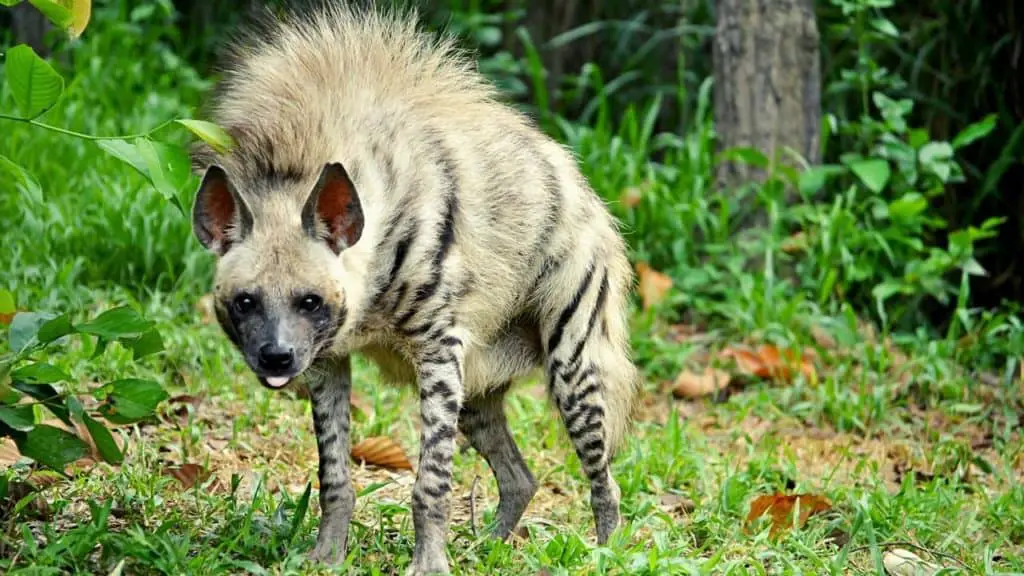
It’s nearly impossible to replicate the wild lifestyle at your house. You could build the biggest enclosure, buy other exotic animals for your hyena to hunt, and even get more hyenas to keep the first company. However, your hyena will not have the same experience as they would in their natural habitat.
Many would consider displacing a hyena from its natural environment inhumane. They are not easily domesticated, so they will likely be unhappy when taken from their home. If you raise them from youth, they may not know any better. However, an adult hyena will seem miserable if taken from the wild.
How to Get a Pet Hyena
If you want to buy a pet hyena, you need to be at least 18 years old. Then, contact your city’s and state’s wildlife agencies to see if you can obtain a permit and find out where hyenas are for sale.
You can prepare your property for a hyena by crafting a giant enclosure for the hyenas to roam. Try to get a meat freezer to store enough food for your carnivorous friend. While hyenas scavenge in the wild and eat a few fruits and vegetables, they require animal protein.
Also, ensure you have a nearby exotic animal veterinarian if your pet needs help. You may need to relocate if there isn’t anyone to help your hyena.
Taking care of hyenas requires a high capital cost. You have to spend a lot on meat, a sturdy enclosure, and veterinary care. Save up your money before making the purchase.
Check out local insurance agencies to see if you can get insurance for yourself and your pet. If you or your hyena get injured, you will want insurance to help cover the price of care.
Keep in mind that your hyena may never adjust to living in captivity. If you raise the hyena from infancy, you have a better chance of them living a comfortable life. Nevertheless, hyenas will always live their best lives in a wild environment.
Also, hyenas are predators. They can attack you at any time, so you need to keep your guard up, as you may never be able to tame some hyenas.
Pet Hyena Alternatives
As you see, sometimes it’s better to look for alternatives. So, if you can’t get a pet hyena, you can adopt hunting dogs, such as:
- Golden retriever
- American foxhound
- Beagle
- Labrador retriever
- Pointer
- Husky
- Bluetick coonhound
- Chesapeake bay retriever
- English springer spaniel
- Irish setter
- English setter
Frequently Asked Questions
Here are some FAQs about hyenas.

